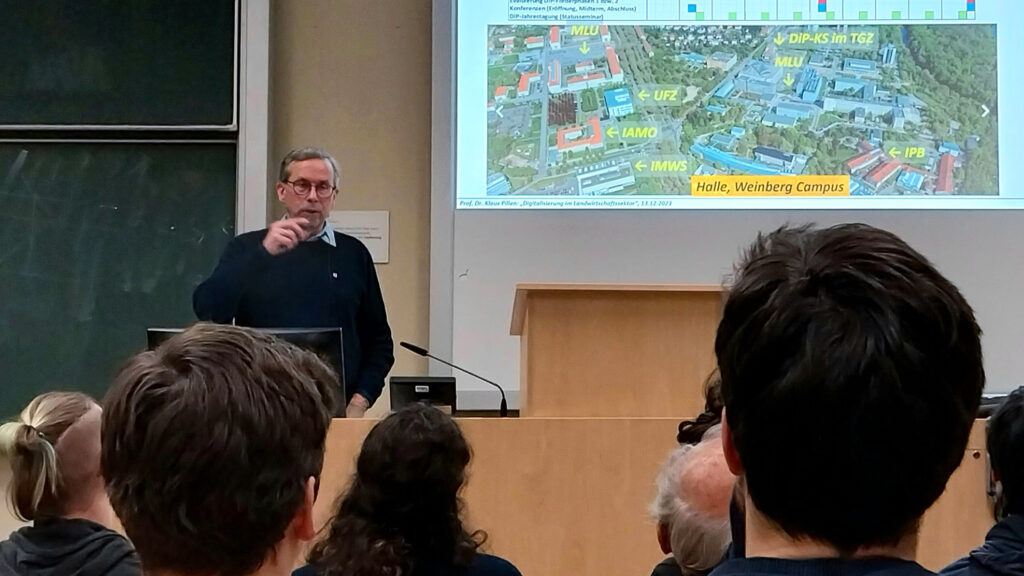Throughout the winter semester 2023/24, the SFI lecture series for the acquisition of general key qualifications (ASQ) focused on how agriculture can be made sustainable. In the lecture on December 13, Klaus Pillen gave an impressive introduction to how the criteria of population growth, climate change, reduction of arable land, scarcity of resources and food shortages due to wars led to the emergence of a need for breeding climate-resilient “plants from the construction kit”. In order to establish the associated “Agriculture 4.0”, the future comprehensive use of digital tools and process chains is essential. He described the development history to date from precision farming, which initially only involved the digital modernization of machines, to the extended digitalization process to smart farming, which already included the agricultural production system, to digital farming, in which the entire agricultural operation would be digitally mapped and the associated data could be incorporated into the value chain without any loss of time. Pillen also used specific examples to provide insights into possible applications based on machine learning in the agrifood sector and for the use of artificial intelligence in the data flow in the Internet of Things ecosystem with the help of appropriate sensor technology.
The DiP spokesperson then presented his new project “Digitalization of plant value chains in the Central German mining area in Saxony-Anhalt” and the associated vision of a model region for the bioeconomy that strengthens the location based on its three areas of innovation: plant production, digitalization and sustainability. Finally, Pillen gave a summary of the extent to which his own research results in the areas of genome sequencing, high-throughput phenotyping, genomic prediction, genome editing and plant modelling using artificial intelligence have also benefited from the new possibilities of digitalization.
